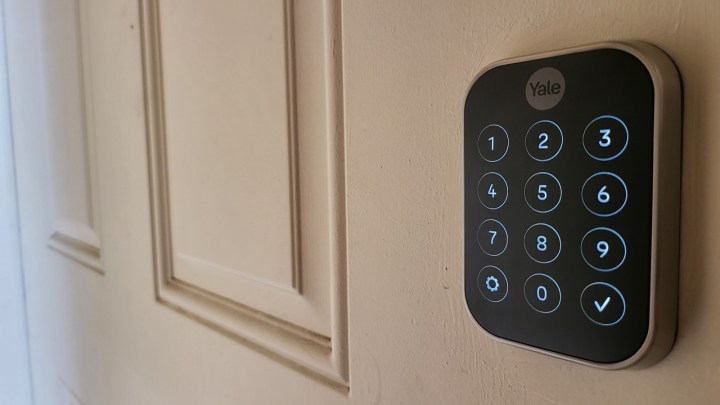Depending on which Yale Assure Lock 2 model you own, you could see anywhere from three to 12 months of battery life. That’s a shocking range — and if you’re not prepared to change batteries every 90 days, you’ll want to do everything you can do to optimize its performance.
From picking the right model to perfecting your installation, here’s a look at how to improve Yale Assure Lock 2 battery life.
Picking the right Yale Assure Lock 2

If you pick a Yale Assure Lock 2 model that has a Wi-Fi Smart Module, your battery life maxes out at around three months. So, if you’re still in the market for a smart lock and battery life is of the utmost importance, consider avoiding these models. Without a Smart Module, you can get up to 12 months of life out of a single set of batteries.
If you already purchased a Yale Assure Lock 2 with a Wi-Fi Smart Module, there’s nothing stopping you from removing it. This will drastically improve your battery life, though note that you’ll no longer be able to access your lock when away from home. It’s a big trade-off, but one that might be worth it if you’re tired of constantly swapping out batteries.
Check your deadbolt position
Aside from the Wi-Fi Smart Module, an imperfect installation is often to blame for excessive battery drain. If your deadbolt is rubbing against the strikeplate, consider taking a few minutes to remove the strikeplate and reposition it. Any resistance between the deadbolt and the strikeplate will cause your Assure Lock 2 to work harder than necessary, draining more battery in the process.
Check your Wi-Fi connection

Just because you’re using a Wi-Fi Smart Module doesn’t mean you’re out of luck when it comes to improving battery life. In fact, it’s possible to squeeze a bit more mileage out of your batteries just by repositioning your Wi-Fi router. The closer it is to the Yale Assure Lock 2, the less battery it’ll need to use.
Unable to move your router? Then try moving objects that sit between your router and front door. A clear path between the two will make it easier for them to communicate — improving your battery life in the process.
Alternatively, you can pick up a Yale Wi-Fi Bridge to sync with the internet instead of your lock’s internal Wi-Fi module. This will reduce battery drain while still giving you the ability to access your lock remotely.
Disable Auto Relocking
While it’s nice to have your door automatically lock itself, excessive use of the feature can have a negative impact on battery life. Instead, consider turning this feature off. This can be done by loading up the Yale smartphone app, diving into the Settings menu, and finding the device you want to modify.
From there, simply scroll to the Auto-Lock feature and toggle it to Off.



